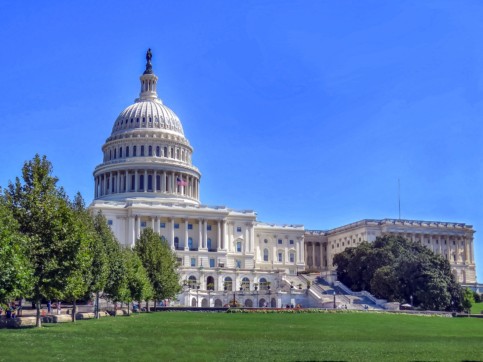How Changes to the U.S. Paycheck Protection Program Affect Nonprofit Organizations

Changes in Store for the Paycheck Protection Program: H.R. 7010, Paycheck Protection Program Flexibility Act, Signed into Law
On June 5, the Paycheck Protection Flexibility Act was signed into law. This bipartisan bill, which easily passed the U.S. House of Representatives and the U.S. Senate, makes changes to the Paycheck Protection Program, a signature initiative of the CARES Act.
Since the launch of the Paycheck Protection Program (PPP), small businesses and 501(c)(3) organizations with 500 or fewer employees have received approximately $550B in forgivable loans to assist them in weathering the COVID-19 pandemic. As of June 3, approximately $120B remains available for these loans. Borrowers were able to apply for up to $10M or 2.5X (250%) of their average monthly payroll, whichever was less. The loan was intended to cover eight weeks of payroll expenses and for making payments toward debt obligations.
To be forgivable, these loans carried a number of parameters that needed to be met:
- The PPP loan would be fully forgiven if the funds are used for payroll costs, interest on mortgages, rent, and utilities.
- Due to likely high subscription, at least 75% of the forgiven amount must have been used for payroll. Payroll costs include employee salaries, hourly wages, paid sick or medical leave, and group health insurance premiums. Loan forgiveness would not be applied to compensation paid to any employee in excess of an annual salary of $100,000.
- The covered eight-week period could be applied to any time frame between February 15, 2020, and June 30, 2020.
- Small businesses and 501(c)(3) organizations receiving loan forgiveness for PPP loans were not eligible for payroll tax deferral program.
- Small businesses and 501(c)(3) organizations receiving loan forgiveness for PPP loans were not eligible to receive the Employee Retention Credit.
With the enactment of H.R. 7010, Paycheck Protection Flexibility Act, the following changes are in effect for the Paycheck Protection Program:
- Extends the eight-week period for forgivable expenses to 24 weeks. This change gives small businesses and 501(c)3 organizations the flexibility to spread the loan over the full timeframe of the COVID-19 pandemic.
- The ratio of payroll expenses to other expenses for the loan to be forgivable changes from 75%/25% to 60%/40%.
- Extends the loan term to a minimum of 5 years.
- Ensures access to payroll tax deferment for small businesses and 501c(3) organizations that take PPP loans.
- Extends the deadline to rehire employees beyond June 30, 2020 to December 31, 2020.
- The deadline to apply for a PPP loan remains June 30, 2020.
As agency guidance on these changes becomes available, we will post additional information to Blackbaud’s CARES Act Resource Hub. We hope this highlight of the potential legislation is one way we can help. As this and other legislation related to COVID-19 relief for the social good community evolves, we will do our best to continue bringing you valuable updates.


